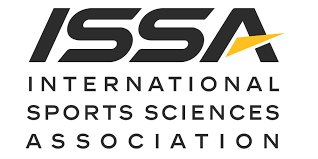
This post may contain affiliate content from which we earn a small commission at no additional cost to you. Read our full disclosure.
Ever wondered if your personal trainer could dish out some nutrition wisdom too? Turns out, it’s not just about pumping iron; some trainers are like nutritional gurus in disguise. But hold up, can personal trainers give nutrition advice?
Unravel the scoop on whether your workout buddy can also help you navigate the jungle of food choices. It’s not just about crunches anymore; we’re talking about crunching numbers and dishing out the right fuel for your fitness journey. Ready to separate the salad myths from the protein-packed truths? Let’s get started!
Can Personal Trainers Give Nutrition Advice? The Changing Landscape of Fitness
Traditionally, personal trainers were primarily associated with crafting workout routines, guiding clients through exercises, and monitoring progress. However, as our understanding of health has evolved, the holistic approach to fitness has gained prominence.
Today, the emphasis is not only on burning calories but also on nourishing the body from within. This shift has prompted a reevaluation of the personal trainer’s role, with nutrition becoming an integral aspect of their expertise.
Credentials Matter
While the desire to offer nutritional advice is present, it’s crucial to acknowledge that not all personal trainers are equipped to do so. Proper credentials play a pivotal role in determining a trainer’s competence in providing nutritional guidance.
Certifications from reputable organizations, specialized courses, and ongoing education in nutrition are essential elements that distinguish a qualified trainer from one who may lack the necessary expertise. Here are some trusted certification authorities:
ISSA
ISSA (International Sports Sciences Association) stands out as our top recommendation for personal trainer certification, emphasizing success both within and beyond the fitness arena.
This certification provides the flexibility of home-based study, accompanied by an open-book quiz. It remains valid for a two-year period, requiring 20 Continuing Education Credits (CECs) that can be earned through engaging online conferences and workshops.
With a solid money-back guarantee, ISSA confidently assures job placement opportunities post-certification. Beyond imparting fitness knowledge, ISSA goes the extra mile by offering courses that focus on honing effective business skills—essential for establishing a sustainable and thriving career in the fitness industry.
If you’re interested in trying ISSA, click here to get started right away! And for more information, you can check out our review Article on ISSA.
Checkout Code for an additional $100 OFF:


ISSA Certifications - 75% Off
NASM
NASM’s Certified Personal Trainer (CPT) certification is widely recognized for its comprehensive curriculum and evidence-based approach. With a focus on exercise science and program design, NASM equips trainers with a solid foundation for success.
The program’s Optimum Performance Training (OPT) model offers a systematic and effective approach to personalized fitness. Choosing NASM signifies a commitment to excellence in delivering science-backed training solutions.
NSCA
The Strength and Conditioning Specialist (CSCS) certification offered by the National Strength and Conditioning Association (NSCA) is highly respected in the fitness industry. Tailored for those emphasizing strength and conditioning, the program covers advanced topics in exercise science and program design.
Achieving CSCS certification indicates a dedication to excellence in training athletes and individuals seeking advanced fitness goals. NSCA’s emphasis on both practical skills and theoretical knowledge makes it a valuable credential for professionals in the strength and conditioning field.
ACE
The ACE Personal Trainer Certification is a renowned program by the American Council on Exercise, providing a solid foundation in exercise science and client coaching. With a focus on evidence-based practices, ACE-certified trainers stand out for their comprehensive knowledge and practical skills.
This credential signifies a commitment to excellence in the fitness industry, making it a valuable asset for aspiring and established personal trainers alike. Elevate your career with ACE and become a trusted fitness professional.
For further information on the certification you may read our article “Best Bodybuilding Coach Certifications“.
The Science Behind Nutrition
Understanding nutrition involves more than memorizing food pyramids. It requires a grasp of biochemistry, metabolism, and dietary science.
Personal trainers with a solid foundation in these areas can effectively translate complex nutritional information into practical advice for their clients. This knowledge empowers trainers to tailor recommendations based on individual goals, dietary restrictions, and health conditions.
Individualized Approach
One size does not fit all, especially when it comes to nutrition. Personal trainers, armed with the right knowledge, can personalize nutritional guidance according to an individual’s unique needs.
Whether a client’s goal is weight loss, muscle gain, or overall well-being, a tailored approach to nutrition enhances the effectiveness of the fitness journey. This individualization is a key aspect of the evolving role of personal trainers in the realm of nutrition.
Collaboration with Registered Dietitians
While personal trainers can offer valuable general advice, it’s important to recognize the boundaries of their expertise. Complex health conditions, specialized dietary needs, or precise meal planning often require the intervention of registered dietitians.
A collaborative approach, where personal trainers work in tandem with nutrition experts, ensures that clients receive comprehensive care that addresses both fitness and dietary aspects.
Legal and Ethical Considerations

Navigating the realm of nutrition advice requires personal trainers to be aware of legal and ethical considerations. In some jurisdictions, providing specific dietary recommendations may fall outside the scope of a personal trainer’s practice.
Being well-versed in the legal landscape helps trainers avoid potential pitfalls and ensures that their guidance aligns with established guidelines.
Continuous Learning and Adaptability
The field of nutrition is dynamic, with ongoing research leading to new insights and discoveries. Personal trainers committed to offering relevant nutritional advice must be adaptable and open to continuous learning.
Staying updated on the latest nutritional trends, scientific findings, and dietary recommendations allows trainers to provide current and evidence-based guidance to their clients.
Client Education
Empowering clients with nutritional knowledge is a fundamental aspect of a personal trainer’s role. Educating clients about the role of nutrition in achieving their fitness goals fosters a sense of accountability and encourages informed decision-making.
When clients understand the connection between their dietary choices and overall well-being, they are more likely to make sustainable and healthy lifestyle changes.
Final Words – Can Personal Trainers Give Nutrition Advice?
In wrapping up, personal trainers can indeed offer valuable nutrition advice. Their insights, combined with recognized certifications like ISSA, enhance their ability to guide you toward a healthier lifestyle.
Just as ISSA ensures trainers stay informed, your fitness journey becomes a well-rounded experience with the dual expertise in exercise and nutrition from your trusted personal trainer.


ISSA Certifications - 75% Off
- Online Vs In-Person Certification Courses: Pros & Cons - April 23, 2024
- Tips for Acing Your Fitness Certification Exam - April 21, 2024
- Balancing Work-Life as a Fitness Trainer: Complete Guide - April 19, 2024
Disclosure: In the spirit of full disclosure, DIYactive.com may be compensated in exchange for featured placement of certain reviews or links on this website. View our full disclosure.



